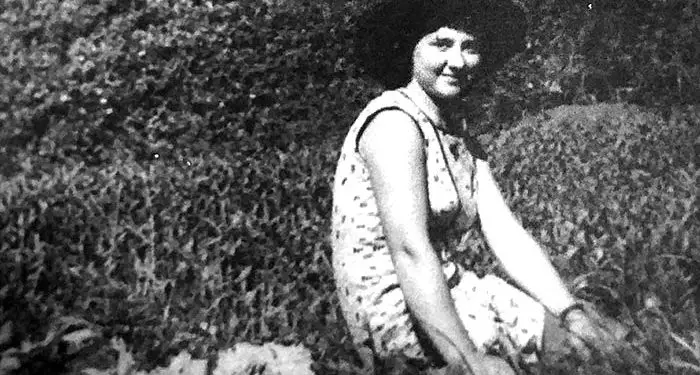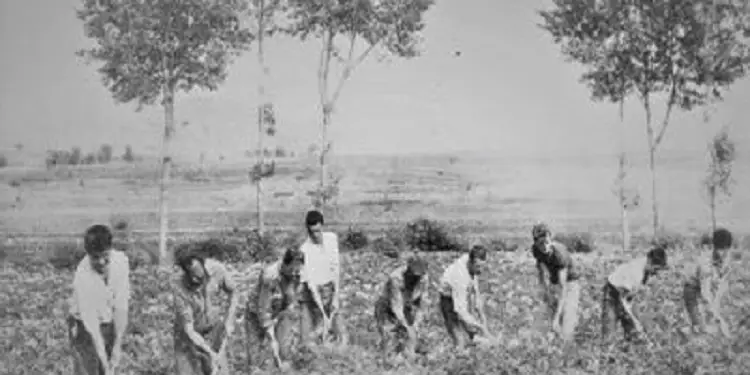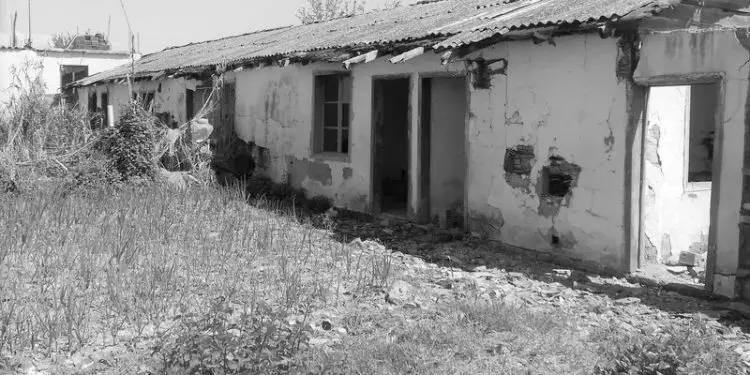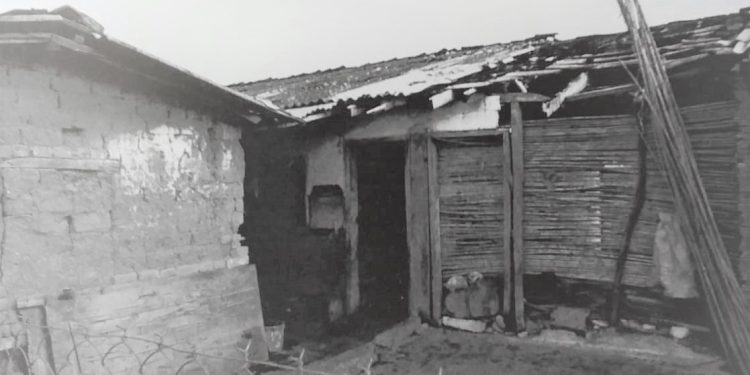Interviewed by: Violeta Murati
The first part
Memorie.al / A rare novel, a historical narrative from the dictatorship of how a teenage girl experienced persecution. Alma Gjurgji, in the book “Severed Arms”, recently published by the Institute for the Study of Communist Crimes and Consequences, has told in literary form about the terrible stories of persecution in the dictatorship…! If the “novel” fulfills its mission, soon this book will also be shown in the cinema, by the director Besnik Bisha.
Ms. Alma, you have written a rare memoir. A 10-year-old girl who confesses the past, the persecution. How could you organize such a memory, from a little girl?
I think that every human being has a certain journey in his life, which is inevitably filled with simple or impressive events. These vital episodes are fixed in the memory of each of us. Of course, unusual events, those that hurt a lot, those that leave an indelible mark on our lives, are hard to forget. Such were the ones that accompanied the fragile years of my childhood and youth, just like hundreds and thousands of other children who, together with their families, suffered in the internment camps.
Innocent children, who had to suffer endlessly, generation after generation, for the political convictions of their grandparents, fathers, or their relatives. And how can I forget my 10th birthday, for which I fantasized about a cake with candles, wishes and gifts from all my relatives. That very day, riding on top of a monster car, we were being exiled from Tirana as a family…! This is how I described this painful episode in my book: […]
“I don’t remember exactly how many hours that journey to hell took. Riding on top of the fenders, I could feel the merciless rocking of that black car on the unpaved roads, with potholes and stones, among those bushy hills scorched by the summer heat, which was in its last days. In the dark we arrived at the village that was designated for my family, somewhere in the hills of Dumre.
The car stopped in the middle of the village and some of its residents approached it. With a natural curiosity, but also with an evil joy that the “enemies” had received the “deserved punishment”, they tried to direct the driver to continue a few meters further, towards the hut that was designated for us.
I had never seen anything like it before. It was really a thatched hut. The floor is dirt. Adjacent to that hole called the door was a huge, irregularly shaped stone, and I never understood how or why that stone was placed there.
It was probably detached from the surrounding hills and the hut adjacent to it was built long after. Maybe. Until that time, I had believed that such huts were built for domestic animals, and I happened to see them in a movie about the life of tribes and tribes in Africa.
No, I wasn’t in a dream or in the cinema. That hut was real and we were to dwell there. We were all numb, while mom couldn’t hold herself anymore, burst into tears. My little sister kept clutching her dolls, while the yellow curls stuck to her face from the sweat and suffering of the road.
The blue eyes, more beautiful than the spring sky, had lost their sparkle. That little creature had the intelligence and intuition not to ask for anything, it didn’t ask to eat, it didn’t ask to sleep, it just looked at us in turn, as if to understand the causes of that unnatural situation”! […].
Allow me to remind you that during these years, enough has been written about the terrible stories of communist persecution, but I have regrettably found and experience an unusual and cynical indifference to these sufferings. Of course, the memories of that inhumane treatment were alive inside me, but I had never thought to write about them. The impetus for this was a special moment, about three years ago. The terrible “class war”, in a different form, was being recycled again in the reality of the troubled Albanian transition.
Thus, in violation of any law, hundreds and thousands of people, who had different political beliefs from the ruling party, were dismissed from work. An endless war, a cruel exclusion from integration opportunities and livelihoods. All this negative charge and pain that I accumulated again, I needed to discharge it somewhere…!
So, I sat down to write, which I had never done before. It seemed to me that I was struggling to untie the mouth of a well-sealed bag. The memories were there, all I had to do was show him the way out. I was writing only for myself. It was a confidence that I never thought I would share with hundreds of thousands of others.
Fragment after fragment, episode after episode, and the result was my first book; “Ripped arms”. My relatives and close friends, amazed at the style of that narrative, as true as it is impressive, encouraged me that these terrible memories and facts must necessarily open the way to publication.
And so, it happened. Appreciated by the Institute for the Study and Publication of the Crimes of Communism, as a contribution to shedding light and denouncing these crimes, this book found its way to publication.
“Born arms” is the name of the book, it is almost in the genre of a story that is a little hard to “believe”, but it reads like a novel. Curiosity is natural about the experiences of this child, who became a teenager, how can he reflect now?
As you asked me this question, I remembered a statement by Father Zef Pllumi, given in his last interview, before he passed away. Asked about the veracity of the confessions in the exciting book “Tell me”, he more or less answered in this way: “…I have told very little about the truths lived in the communist hell, as I did not want to be unreliable, for new readers…”!
In this case, I would affirm the same about the truths of my life. An ordeal of persecution spanning 23 years, certainly has in its content, a large number of sufferings, horrors, denigrations, oppressions and threats for me and my family. Because of our grandfather executed by the communist regime, we were considered political opponents, or to be more precise, enemies of the party.
If I were to remember and write about every episode lived in ten years, the result would be a very long story and the interest in it would be minimal. For this reason, I made the appropriate edits and cuts. I was conscious of mentioning some of my most indelible and painful memories in as short a material as possible…!
My goal was to describe with the greatest truth, the experience of those unfortunate events,… every letter, every word, every paragraph is true, covered with terror and horror. Eh, now reflecting…actually I didn’t keep a journal. My very honest memories are brought into this book, as I experienced them.
I think that, apart from the inalienable truths, my book is also a reflection on human tragedies of those proportions. Although difficult and at great cost to the lives of hundreds and thousands of people, in the end I also consider it a triumph, a triumph of good over evil. The fall of the communist criminal regime confirms something like this.
In the book, talk about “rejections”… What were these experiences for your age?
I was very young when I faced rejections. I experienced the problems my family had with the regime at the age of 8, when both my parents were expelled from education to work on the “Gjergj Dimitrov” Agricultural Farm, in Sauk, Tirana. In truth, I didn’t understand what was happening, since the conversations underlying the injustices of the system could never be had in the presence of a child.
The first real confrontation with the dictatorship and its rejections, and my awareness of what we were experiencing, happened at the age of 10. This is directly related to the deportation of my family, which was followed by successive expulsions… this is how I described it in my book, the day after the deportation: […]
“I met the hopeless gaze of my parents. I saw them destroyed. Their eyes were haunted under black circles. My father invited me closer and for the first time in his life, explained to me what was happening and its causes. He told me about the dictatorship of the proletariat, about the class struggle, about his intellectual father, executed by the communists, and that we had to pay for it.
We all had to pay, even my three-year-old little sister, who was still sleeping. Meanwhile, her innocent and angelic sleep was being disturbed by the flies and wasps that the coming of the day had brought to life.
In their aggressiveness and those little creatures of nature, they were against us. It was all too much for me. The day before I had turned ten years old. Until that time, I was also indoctrinated by communist propaganda. At school I was taught to be happy for the Party and uncle Enver, that; “The party was the mother of all children.” I was taught that Albanian children “were the happiest in the world”, and other nonsense like this.
How many poems about the Party had I learned and recited…?! My father was not talking to a ten-year-old child, but to an adult who needed to be made aware of what awaited him. I felt so confused that I was unable to ask any questions. I was just trying to understand. I was overcome by an all-encompassing pain. The world is collapsing under my feet. Within three days, everything changed in what my life was, everything I had believed or desired in my childhood dreams, no longer existed…!
…Although I was only a child, my extraordinary and emotional account of what was happening made me feel instantly grown up. I realized that my childhood was over, and that I would have to adapt to this ugly reality, I would have to help my parents, in coping with that difficult life in that hell! […]
You mention places, where you have lived, dangers, adventures, emotional states but no name, except for a friend, who is a real person. For example, the story of the teacher seems terrible to us in terms of mental demoralization, why don’t you have names?
To be fair, I’ve been asked this question before. As I stated above, I started to recall and write these painful truths of my life, without thinking that the result would be a book, already well-regarded. The characters who caused so much injustice to me and my family have a name, and I have them alive in my memory. But those wretches were the offspring of that sample system that manufactured such monstrous creatures.
I do not regret at all that I did not mention names, as my intention was and is to denounce that heartless system that had built that huge criminal structure, that sowed terror and oppression that no other country had experienced. Even if I were to go back to the book and rewrite it, I still wouldn’t do it.
I think that the publication of the deeds, as well as the moral punishment of these unscrupulous servants of the regime, is and remains the duty of politicians, analysts and historians. Now those individuals have no role in my life, I don’t even know where they are.
Maybe some of them are somewhere in the world, or maybe they are in leadership roles of current politics and cynically give lectures on human rights and democracy, while none of them have asked for an apology. I wish and wish with all my soul that they reflect and one day regret everything they have done. Unfortunately, such human reactions, of these people who destroyed people’s lives, I almost never encountered.
While the above people in my book are merely anonymous, I couldn’t help but mention by name, my dear childhood friend, Rita. She was and is much more than that. Is my sister. Her parents gave me the most beautiful gift of those years. After the death of my grandmother, they kept me at home and treated me like their daughter. And this happened in a period of terror, when all the doors of our relatives were closed to us.
That family made me understand and experience gratitude, perhaps one of the most beautiful in the world. It remains so to this day. As for the difficult relationship with the first teacher I had in exile, the callousness of her, who was supposed to be an educator and a second parent, I have described in this way:
[…] “While relations with the other children were moving towards normality, I cannot say the same for the teacher. I compared her to my wonderful teacher in Tirana and felt that she did not want to know about those children, who, although they attended school, were almost illiterate.
Unlike them, I was lucky enough to have three teachers at home. Of course, I also include my grandmother here. The parents of those who grew up, woke up and went to the fields to provide bread for the many children they brought to life. In retaliation, I was overcome with the desire to challenge him. It was a form of rebellion. Especially in math class, which was my favorite subject.
I used to ask him questions that made him difficult. I even felt a kind of incomprehensible pleasure when her face changed color. There were times when I looked for alternative ways to solve some problems. Gritting her teeth, she endured this situation for several days, but one day, unable to answer my question, in the height of her rage she said to me:
“-Learn as much as you want, the pickaxe is waiting for you.” This explosion happened in the classroom, in front of all the children, who sometimes saw me, sometimes the teacher, in surprise. I had expected a reaction from her, but never this ruthless and killer of hope and dreams. I was so numb; I was about to cry.
In that inhumane regime, you were too shy to cry…! Tears could be considered displeasure and a challenge to the system. The innocent tears of a slain pride were menace. There are some moments in life that leave a deep impression and this was one of them. I felt myself falling apart into fragile and desperate pieces, which dimmed my faith that one day, I would be able to pick them up and glue them together again.
I hated that teacher with all my heart. He’s one of the few people I’ve hated. Not that there were few who hurt me, but it was me who then tried to exclude hatred from the world of my feelings. He wouldn’t let me live. It was very exhausting in feeling, corrosive, so much so that it took my breath away. I loved school so much and had dreams of what I wanted to be when I grew up. After that, I didn’t deal with the teacher anymore, nor did she with me. An icy “peace” was established.
A year later, my teacher was raped by some soldiers who took her by surprise, as she was returning to the village where her family lived. At that age, I could not understand what rape was, I only knew that something very bad and shameful had happened to her. Even in the village it was said; “they caught him with difficulty”. The soldiers paid for this with prison, while the teacher was permanently transferred from the school in that village. I felt no pity for my teacher. Memorie.al
The next issue follows















